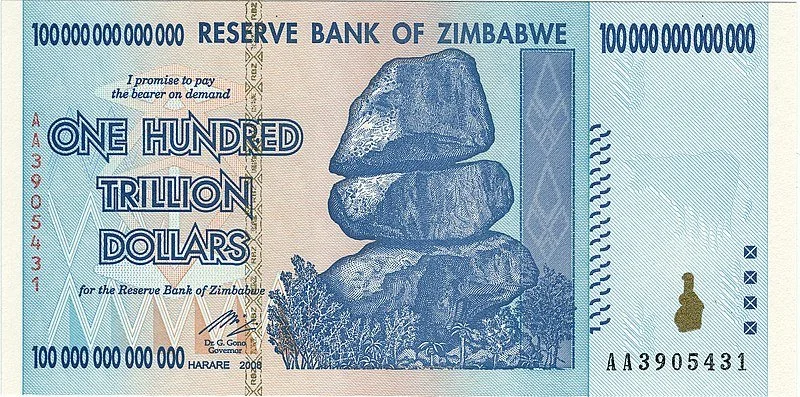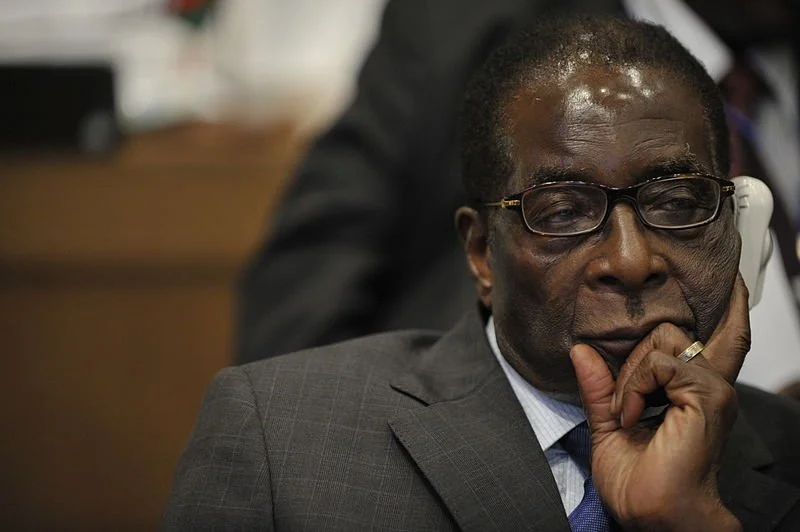False Flag
Zimbabweans ousted a 93-year-old dictator in 2017. Then things got worse.
Read
When Evan Mawarire draped himself in his country’s flag six years ago, he didn’t know the video he was about to make would put his life in danger — and help topple a dictator. His forefathers had fought for Zimbabwe and for that flag. But now, Mawarire says, it “felt like a fraud.” Over four decades, Zimbabweans had suffered crushing economic woes and political oppression under President Robert Mugabe’s rule. Mawarire, the founder and one-time pastor of a Christian church, recalls that tumultuous time and its fallout, with Siva and guest-host Emily Burrill.
Following Mugabe’s ouster, the 93-year-old dictator was replaced in a military coup by his handpicked successor, Emmerson Mnangagwa, yet another figure in the ruling Zanu-PF party. And so the dictatorship’s reign of terror continued. Many, like Mawarire, faced trials on bogus charges of incitement and treason. Many, like Mawarire, were forced to flee Zimbabwe because of their activism. And many others were beaten, tortured and killed. Now, a new movement is rising — the Citizens Coalition for Change — under the charismatic leader Nelson Chamisa. Meanwhile, from his new home in exile in the United States, Mawarire watches, writes, waits and hopes for a brighter future.
Meet
Evan Mawarire founded His Generation Church and #ThisFlag, a citizens movement in Zimbabwe. He faced torture and prison time after posting an anti-Mugabe video online and participating in mass protests, then fled to the United States in 2020. Foreign Policy magazine named Mawarire among its 100 global thinkers of 2016. That same year, The Daily Maverick dubbed him Africa’s “Person of the Year.” He has served as a fellow at Stanford University’s Center for Democracy, Development and the Rule of Law and as a Yale University World Fellow. Currently, Mawarire is the Reagan-Fascell Democracy Fellow at the National Endowment for Democracy. Follow him on Twitter @PastorEvanLive.
Emily Burrill is an associate professor in the University of Virginia’s history department and a member of the Nau Democracy Lab. Her research focuses on 20th century west Africa, as well as gender and sexuality in the French empire. Her book States of Marriage: Gender, Justice, and Rights in Colonial Mali (Ohio University Press, 2015) won the 2016 Heggoy Prize from the French Colonial Historical Society. She co-edited the volume Domestic Violence and the Law in Colonial and Postcolonial Africa (Ohio University Press, 2010) and Legislating Gender and Sexuality in Africa: Human Rights, Society, and the State (University of Wisconsin Press, 2021). Follow Burrill on Twitter @EmilySBurrill.
On April 20, 2016, just two days after Zimbabwe’s Independence Day, Mawarire, posted a video he recorded on a smartphone propped on a Bible in his church office, lamenting how the country had failed to live up to its stated values. That video went viral, and #ThisFlag was born.
Mawarire’s struggle has been featured in Forbes, Deutsche Welle, the Guardian and CNN, among others.
In States of Marriage, Burrill explores how the codification of marriage and ideas about gender shaped the lives of colonial subjects in French Sudan — present-day Mali.
Domestic Violence and the Law in Colonial and Postcolonial Africa brings together perspectives from historians, anthropologists, legal scholars and activists to examine and identify the limits of local and international interventions to protect women.
Learn
Although Mawarire’s social media movement inspired thousands suffering under president Mugabe’s ironclad fist, some leading figures in Zimbabwe were critical of his direct challenge to the regime.
Zimbabwe just celebrated another Independence Day on April 18, marking the moment in 1980 when the country officially broke away from British colonialism and white minority rule.
Mugabe is a complex figure. He made his mark in the 20th century as a fierce defender of African independence. Then, analysts say, he ran the country much as its colonizers had.
After more than 37 years in power, Mugabe stepped down in 2017. The military promptly replaced his administration with an equally oppressive dictatorship, still in the clutches of the Zimbabwe African National Union – Patriotic Front, or Zanu-PF.
Robert Gabriel Mugabe died in September 2019, at age 95.
Serious challenges to the ruling party over the years have been marred by political infighting and state-sanctioned violence on the campaign trail. But in the most recent elections, the Citizens Coalition for Change won a majority of seats in the national assembly. A presidential election is set for next year.
Stay informed about the state of democracy in Zimbabwe, with reporting from Foreign Policy and Al Jazeera. And brush up on the prospects for its people in this Brookings Institution report.
Heard on the Show
Our theme music is the title track off the 2010 album Neogrotesque, by the Montreal band Tortue Super Sonic. This time, we also scored our intro with the opening song from Johnny Ripper’s Soundtrack for a Film That Doesn’t Exist, “Opening Credits.”
Background sounds from the streets of Zimbabwe in 2016 came from Civicus, Euronews and South Africa’s News24. And of course, we sampled some audio from Mawarire’s impassioned video. Watch the whole thing on YouTube:













